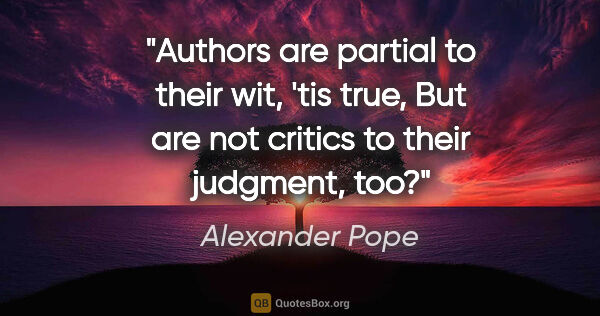Partial Quotes (page 3)


Like everyone who possesses something precious in order to know what would happen if he ceased for a moment to possess it, he had detached the precious object from his mind, leaving, as he thought, everything else in the same state as when it was there. But the absence of one part from a whole is not only that, it is not simply a partial lack, it is a derangement of all the other parts, a new state which it was impossible to foresee in the old.
Marcel Proust
I believe that it was the highest privilege of my life to wear the uniform of the United States Marine Corps. I don’t believe the country owes me anything for doing so, but that my serving was partial payment on what I owe our country—a debt that can be never fully paid, but with my life.
Robert Hall
This is our dilemma--either to taste and not to know or to know and not to taste--or, more strictly, to lack one kind of knowledge because we are in an experience or to lack another kind because we are outside it. [. . .] Of this tragic dilemma myth is the partial solution. In the enjoyment of a great myth we come nearest to experiencing as a concrete what can otherwise be understood only as an abstraction.
C. S. Lewis
Language operates between literal and metaphorical signification. The power of a word lies in the very inadequacy of the context it is placed, in the unresolved or partially resolved tension of disparates. A word fixed or a statement isolated without any decorative or ‘cubist’ visual format, becomes a perception of similarity in dissimilars—in short a paradox.
Robert Smithson
The future is foretold from the past and the future is only possible because of the past. Without past and future, the present is partial. All time is eternally present and so all time is ours. There is no sense in forgetting and every sense in dreaming. Thus the present is made rich.
Jeanette Winterson
I love the pure, peaceable, and impartial Christianity of Christ; I therefore hatethe corrupt, slaveholding, women-whipping, cradle-plundering, partial, and hypocritical Christianity of this land. Indeed, I can see no reason, but the most deceitful one, for calling the religion of this land Christianity. I look upon it as the climax of all misnomers, the boldest of all frauds, and the grossest of all libels.
Frederick Douglass
Besides, the story is ambivalent and mysterious in its ending. Is this Alkestis returning from down below? Why does she have a veil over her face? Could it be that when we forcefully bring back to life what has been lost through love what we get is only a shate of its former reality? Maybe we can never succeed fully in restoring the soul to life. Maybe she will always be veiled and at least partially shielded from the rigors of actual life. Love demands a submission that is total.
Thomas Moore

The good folks mostly win, courage usually triumphs over fear, the family dog hardly ever contracts rabies: these are things I knew at twenty-five, and things I still know now, at the age of 25 x 2. But I know something else as well: there's a place in most of us where the rain is pretty much constant, the shadows are always long, and the woods are full of monsters. It is good to have a voice in which the terrors of such a place can be articulated and its geography partially described,...
Stephen King
You can, in short, lead the life of the mind, which is, despite some appalling frustrations, the happiest life on earth. And one day, in the thick of this, approaching some partial vision, you will (I swear) find yourself on the receiving end of - of all things - an "idea for a story," and you will, God save you, start thinking about writing some fiction of your own. Then you will understand, in what I fancy might be a blinding flash, that all this passionate thinking is what fiction is...
Annie Dillard
No matter how much one may love the world as a whole, one can live fully in it only by living responsibly in some small part of it. Where we live and who we live there with define the terms of our relationship to the world and to humanity. We thus come again to the paradox that one can become whole only by the responsible acceptance of one's partiality.
Wendell Berry